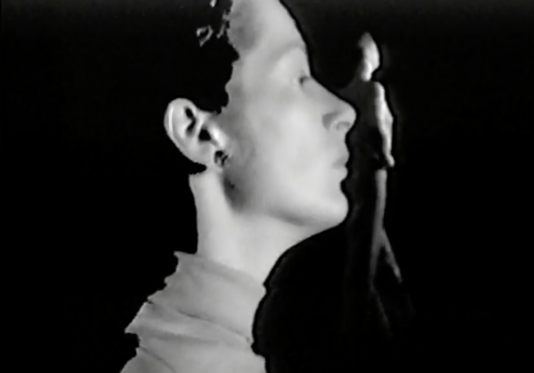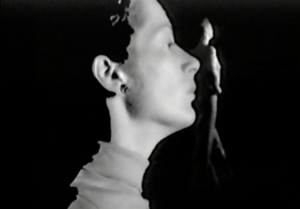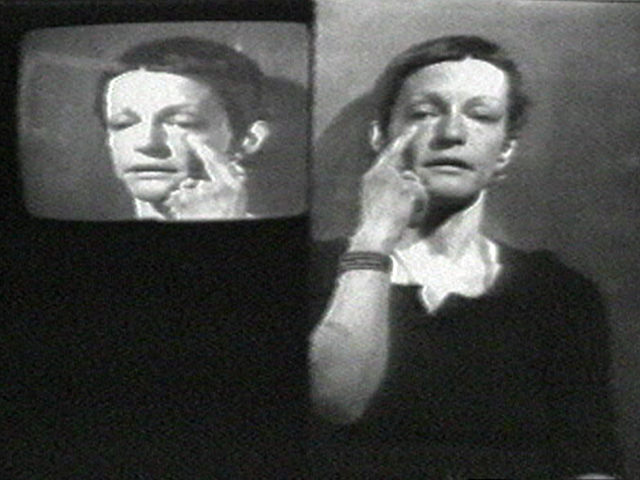Smithsonian American Women’s History Initiative Announces Monthly Online Screening Series

Since the invention of the moving image, women have created films and videos that have changed how people see and experience the world. Throughout 2021, the Smithsonian will celebrate the breadth of women-made films and videos through a monthly program series called “Viewfinder: Women’s Film and Video from the Smithsonian.”
On the first Thursday of each month, the Smithsonian will host a free online screening of rarely seen short films and videos from its collections followed by live conversations with the artists and Smithsonian curators. Each screening will include an audience Q&A, and a recording of the program will be available for the remainder of each month on womenshistory.si.edu.
“One of the great strengths of the Smithsonian is in the powerful connections that are found across its vast collections that allow us to tell complex stories and amplify our shared experiences,” said Stephanie Stebich, chair of the Smithsonian American Women’s History Initiative and the Margaret and Terry Stent Director of the Smithsonian American Art Museum. “As the COVID-19 pandemic has closed the doors to the Smithsonian’s physical spaces, we have opened our digital doors even wider. The ‘Viewfinder’ series will bring media art from across the Smithsonian out of the dark and into people’s homes around the world, highlighting the interdisciplinary depth and diversity of the collections.”
The selected works featured in “Viewfinder” will explore different themes that connect collections across several Smithsonian museums. The first six programs of the year will feature works that examine inner worlds—a timely topic as the global pandemic continues to confine many people to their homes. Featured programs will highlight issues directly addressing domestic interiors, including childcare and labor, while others explore the emotional experiences that shape private lives. Screenings on this theme are drawn from the collections of the Archives of American Art, National Portrait Gallery, Smithsonian American Art Museum, Hirshhorn Museum and Sculpture Garden, National Museum of African Art and National Museum of African American History and Culture.
Monthly programs will be hosted on Zoom at 5:30 p.m. ET, with live closed-captioning available; advance registration is required. The public can find information about upcoming screenings and register for each program on the American Women’s History Initiative website. The schedule for the first six programs is:

Still from Robert and Ingrid Wiegand, “Julie,” 1974. 1 videocassettes (U-Matic), Robert Wiegand papers and video art, 1953–1994. Archives of American Art, Smithsonian Institution.
Jan. 7—Ingrid Wiegand, Julie Finch: On Loft Life and Space-Making in the 1970s
The first program of the series will feature “Julie” (1974) by filmmakers Robert and Ingrid Wiegand and “Walking” (1975) by Ingrid Wiegand from the collections of the Archives of American Art. These works explore daily life in the filmmaker’s SoHo neighborhood in New York. Following the screening, curator Josh T. Franco will join Wiegand and dancer Julie Finch, the subject of “Julie,” to discuss art and everyday life in 1970s downtown New York City.

Still from Joan Jonas, “Left Side Right Side,” 1972. Video (black-and-white, sound), 8:50 min. © 2020 Joan Jonas / Artists Rights Society (ARS), New York. Courtesy the artist and Gladstone Gallery, New York and Brussels.
Feb. 4—Joan Jonas: The Inner Worlds of Video
This screening includes two videos from artist Joan Jonas from the collections of the National Portrait Gallery and the Smithsonian American Art Museum: “Left Side Right Side” (1972, National Portrait Gallery) and “Vertical Roll” (1972, Smithsonian American Art Museum). The screening will be followed by a conversation with Jonas and Saisha Grayson, curator of time-based media art at the Smithsonian American Art Museum, and Charlotte Ickes, curator of time-based media art and special projects at the National Portrait Gallery, exploring how artists construct, inhabit and internalize space using the video camera and Jonas’ five-decade-plus career.

Photo of Zina Saro-Wiwa
March 4—Zina Saro-Wiwa: On Mourning and Memory
Mourning is often a private experience. But when the occasions for grief stem from larger social forces, individual pain intersects with history. Such is the case in Zina Saro-Wiwa’s “Sarogua Mourning” (2011), in which the Nigerian-born artist attempts to cry for her father, the political activist Ken Saro-Wiwa, for the first time since his murder. This video is an incoming acquisition to the National Museum of African Art. The screening will be followed by a conversation between the artist and senior curator Karen Milbourne.
April 1—Margaret Salmon: On Motherhood and the Everyday
“Ninna Nanna” (2006), by filmmaker Margaret Salmon, explores the relationships between three young Italian mothers and their infants. In striking images captured on 16 mm film, Salmon observes the subtle dynamics and emotional nuances of the women’s interactions with their young children. The filmmaker will join Marina Isgro, associate curator of media and performance art and Robert and Arlene Kogod Secretarial Scholar, in a post-screening conversation about this work in the Hirshhorn Museum and Sculpture Garden’s collection.
May 6—Zora Lathan and Iman Uqdah Hameen: On Black Interiority
Drawing on the extensive holdings of the National Museum of African American History and Culture’s Earl W. and Amanda Stafford Center for African American Media Arts, this program will be dedicated to the interiority of Black life. The screening will pair the experimental works of Zora Lathan, who uses her family as her muse, and the short film “Unspoken Conversation” (1987) by Iman Uqdah Hameen, which explores a Black woman’s journey as a wife and mother. The filmmakers will join National Museum of African American History and Culture’s curator Rhea Combs and media conservator Ina Archer for a post-screening conversation.
June 3—Leslie Thornton: On Imagining Isolation
“Peggy and Fred in Kansas” (1987), from the Smithsonian American Art Museum collection, is the best-known installment of filmmaker Leslie Thornton’s several-decade episodic experiment “Peggy and Fred in Hell” (1984–2013). In this work, the titular protagonists are cut off from an implied post-apocalyptic exterior. Following the screening, a conversation between curator Saisha Grayson and Thornton will reflect on how this avant-garde film classic resonates with renewed urgency for audiences in 2021.
About the Smithsonian American Women’s History Initiative
The Smithsonian American Women’s History Initiative, “Because of Her Story,” is one of the country’s most ambitious undertakings to research, collect, document, display and share the rich, complete and compelling story of women in America. Launched in 2018, the initiative seeks to create a more equitable and just American society by creating, educating, disseminating and amplifying the historical record of the accomplishments of American women. More information about the initiative, including exhibitions and public programs, is available online at womenshistory.si.edu.